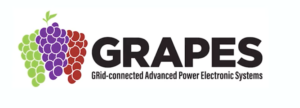
The National Science Foundation Industry/University Cooperative Research Center known as GRAPES, short for GRid-connected Advanced Power Electronic Systems, held its semiannual meeting Nov. 5-6.
UWM was represented by: Adel Nasiri, UWM’s GRAPES site director and Richard and Joanne Grigg Professor, electrical engineering; Rob Cuzner, associate professor, electrical engineering; Brian Armstrong, professor, electrical engineering & computer science and department co-chair and; Lingfeng Wang, professor, electrical engineering & computer science.
These CEAS faculty members currently run eight GRAPES projects. In addition, one new CEAS-led project has been slated for funding starting 2021.
GRAPES research will affect how Americans access energy
GRAPES brings together engineering faculty from several universities and industry partners to make electricity more reliable, greener and less expensive, Nasiri says. The research will affect how Americans access energy – including renewable sources – in the near future.
Collaborative research with industry members also fuels development of new technologies and software tools necessary for the transition to a more robust and resilient electric grid.
In Wisconsin, GRAPES’ researchers partner with industry to develop new technologies for storing, controlling and distributing energy, so that innovations are compatible with the existing grid and safe from cybersecurity threats.
The center was launched by the University of Arkansas and the University of South Carolina in 2009; UWM became an academic partner in 2017, when CEAS received an NSF Phase II grant of
$100,000 annually for three years to start a new university site for the GRAPES I/UCRC which was followed by a five-year continuation grant for Phase III in 2019.